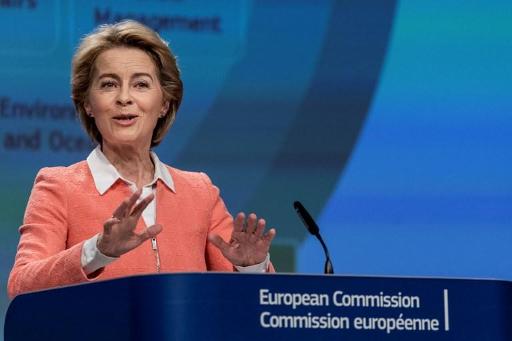The future European Commission will include eight vice-presidents responsible for the implementation of the main priorities of president-elect Ursula von der Leyen.
The incoming Commission President on Tuesday outlined the structure of her executive and the posts she plans to award to the 26 commissioners nominated by member States.
Von der Leyen will take office on 1 November on condition that the European Parliament approves her team. In her opinion every proposed Commissioner is perfect for his or her tasks and will act in the best interests of Europe but the Parliament might think otherwise.
She will be supported by three executive vice presidents: Frans Timmermans (the Netherlands); Margrethe Vestager (Denmark) and Valdis Dombrovsksis (Lithuania). Each will hold the vice presidency for one of the priorities of the Commission President’s programme, in addition to shouldering a specific responsibility as a commissioner.
Thus, Frans Timmermans will coordinate all works linked to the European Green Deal, while managing the Commission’s climate change policy, Ms von der Leyen explained.
Margrethe Vestager is to oversee all initiatives aimed at adapting Europe to the digital age, while retaining her post as commissioner for competition. This could cause some discomfort, particularly in the Trump administration, with which the Danish commissioner did not hesitate to cross swords during her current term of office.
Asked about this, the future president said the only thing that mattered in her eyes was “quality and excellence”, and that Vestager had done an excellent job at that post.
The third vice-president, Valdis Dombrovskis, will coordinate everything to do with the economy at the service of the people, while taking charge of the financial services portfolio.
The five other vice presidents are: Spain’s Josep Borrel (European diplomacy), Vera Jourova (Czech Republic, Values and Transparency), Margaritis Schinas (Greece, Protecting our European way of life – which includes, among other things, migration), Maroš Šefcovic (Slovakia, relations between institutions) and Croatia’s Dubravka Šuica (Democracy and demography).
The distribution of the vice-presidencies reflects the will of the Commission’s German President-elect to ensure gender parity, equitable geographical distribution and political balance within her executive.
The Trade portfolio is to go to Ireland’s Phil Hogan, who had Agriculture under Jean-Claude Juncker. It is currently one of the most strategic posts since the European Union will be called upon in the near future to negotiate a trade deal with Britain.
Other heavyweights in the new European executive include former Italian Prime Minister Paolo Gentiloni, who will be the Economic Commissioner, as the government in Rome had requested, and France’s Sylvie Goulard (Domestic Market).
Belgium’s Deputy Prime Minister Didier Reynders inherits Justice, which also covers oversight, compliance with the rule of law, and consumer protection. He will be replacing Frans Timmermans as the commission’s rule of law watchdog, a task in which his Dutch predecessor had excelled in recent years as many populist and/or anti-liberal governments emerged in Europe.
The team announced on Tuesday will probably be given a grilling by the European Parliamentarians at confirmation hearings to be held in late September and early October. Hungary’s Laszlo Trocsanyi (Enlargement) and Poland’s Janusz Wojciechowski (Agriculture) are particularly at risk of coming under fire from reticent legislators.
Trocsanyi had been behind a controversial justice reform in Hungary while the Polish commissioner is under investigation by the European anti-fraud office for “presumed irregularities” concerning the reimbursement of travel claims when he was a European parliamentarian.
The Brussels Times

